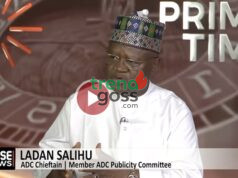The Nigerian Upstream Petroleum Regulatory Commission (NUPRC) is receiving acclaim for transforming Nigeria’s oil and gas sector into a transparent, investor-friendly industry, reshaping energy dynamics within the Economic Community of West African States (ECOWAS).
In a statement on Wednesday, the West Africa Energy Policy Institute (WA-EPI), led by Executive Director Fatoumata Diallo, praised the Commission for restoring global confidence in Nigeria’s oil governance framework and setting a new standard for regional energy regulation.
“The NUPRC has redefined Nigeria’s upstream governance in a way that benefits not just the country but the entire sub-region,” said Diallo. “By promoting clarity, data-driven regulation, and investor confidence, the Commission has created a model of strategic oil governance that stabilizes markets and attracts regional partnerships.”
Diallo highlighted the Commission’s reforms, which emphasize accountability, innovation, and competitiveness, marking a departure from the opaque practices that previously plagued the industry.
“For the first time in decades, oil in Nigeria is beginning to look like a normal, well-governed business. Investors now have access to real-time production data, licensing information, and field performance reports,” she noted. “This accessibility strengthens Nigeria’s reputation as a dependable regional energy hub.”
According to WA-EPI, Nigeria’s active rig count increased from eight in 2021 to 69 by October 2025, indicating renewed investor confidence and regulatory stability.
The group also reported that NUPRC’s reforms have significantly boosted government revenues, with surpluses of 18.3% in 2022, 14.6% in 2023, and an unprecedented 84.2% in 2024.
“These figures are not just statistics; they reflect a regulator that understands the link between transparency, investor security, and economic growth,” WA-EPI stated. “The NUPRC’s strategic engagement with operators and financiers has made Nigeria’s oil market more predictable, a key condition for sustained investment.”
The think tank further praised the Commission’s automation of licensing and compliance systems, calling it a milestone that has reduced bureaucratic interference and increased investor trust.
“The NUPRC’s reforms show that effective governance is about enforcing rules with precision and integrity. When the system is fair, investors respond with trust, translating into jobs, infrastructure, and regional growth,” Diallo emphasized.
WA-EPI also lauded Nigeria’s full implementation of the Petroleum Industry Act (PIA), describing it as the cornerstone of a new era in oil governance that aligns the country’s regulatory framework with global sustainability standards and strengthens host community relations.
“Across West Africa, countries are observing how Nigeria manages this transition,” the institute noted. “The success of NUPRC’s reforms shows that strong institutions and consistent rules can turn resource wealth into shared prosperity. Nigeria’s progress is now a regional benchmark for responsible oil governance.”
WA-EPI concluded that the NUPRC-led oil sector reforms have far-reaching implications for the ECOWAS sub-region, influencing energy investment, regional trade, and infrastructure development.
“With its size and influence, every policy shift in Nigeria impacts West Africa. The NUPRC has positioned the country as a credible and stable player in global energy markets, serving as a model for the region’s energy future,” Diallo added.






